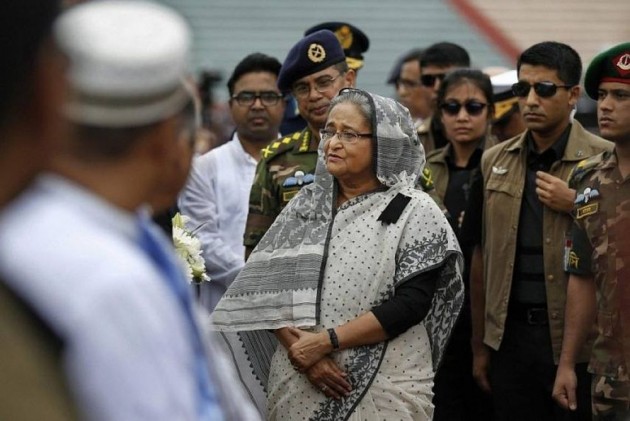Back in January 2015, Nuruzzaman Jonny, 30, general secretary of the Khilgaon unit of Jatiyatabadi Chhatra Dal, the student wing of the opposition Bangladesh Nationalist Party, was detained by the police Detective Branch in Dhaka. The next day his bullet-ridden body was discovered in a playground. He had been shot more than 12 times.
Police claimed that he had been killed in a “gunfight” between officers and Jonny’s accomplices who “opened fire on police.”
Human Rights Watch (HRW) recently suggested that “gunfight” is a false claim regularly used by law-enforcement officials in Bangladesh who execute unarmed civilians and justify such extrajudicial executions with the terms “gunfight” or “crossfire.”
Jonny was among tow and a half thousand Bangladeshis who have allegedly been executed by Prime Minister Sheikh Hasina’s Awami League government and its security officials. Only a few security officials have faced trials, and the trigger-happy regime has carried on like the wild, wild west.
But not all days are the same.
On July 31 of this year, on-duty police officers shot dead documentary filmmaker Sinha Mohammad Rashed Khan, 36, in a so-called “gunfight” in Cox’s Bazar, the southernmost district of Bangladesh.
But this time the victim was not just another opposition-party activist or an unfortunate civilian. He was a former army major.
In the first few hours after the killing, police tried to make it look like just another gunfight, providing the standard narrative of opening fire in self-defense and recovering drugs and yaba tablets. However, in this case the army stepped in.
Within 48 hours after the killing, a “leaked” report of the Directorate General of Forces Intelligence (DGFI), the country’s most influential military intelligence agency, contradicted the police version and said Major Sinha never pulled out his gun when his car was stopped in a routine police check post set to arrest criminals and drug dealers.
Instead, “he calmly got out of his car with his hands above his head, and yet he was shot dead instantly.” The DGFI report also “accuses the police convoy of intentionally wasting 45 minutes before taking him to the hospital.”
Successive governments have normalized crossfire deaths in Bangladesh since its foundation. The country’s first prime minister, Sheikh Mujibur Rahman, created the paramilitary Jatiya Rakkhi Bahini (JRB), similar to Adolf Hitler’s Schutzstaffel (SS), to carry out extrajudicial killings, largely to suppress his political opposition.
While it was in opposition, the Awami League ledged in its election mandate to stop extrajudicial killings. But after the party came into power in 2009, it retained the practice as a tool to suppress opposition, critics and alleged militants.
However, after the killing of Major Sinha, a joint inquiry committee has been set up, and different security agencies have established independent fact-finding committees to investigate the killing.
The reason is simple. Sheikh Hasina cannot afford internal tension and fighting between two key forces, the police and the army. Both forces are backing her to cling to power, as in the 2018 election police were found to have aided ballot stuffing, whereas the current army chief congratulated Hasina after a “landslide election win.”
Many independent observers believed that the election was deeply flawed, marred by countless irregularities.
Transparency International Bangladesh found that law enforcers and civil servants were silent over the casting of fake votes, barring voters from going to polling stations, forcing people to cast votes for Hasina’s party and barring opposition agents from going to polling centers.
Historically, after the country’s 1990 democratic uprising, the army had maintained a somewhat “neutral image.” There was a popular belief that to Bangladesh Army, the interests of the state were more important than narrow political interests. During elections, troops guarded the polling stations with utmost professional efficiency without allowing any vote rigging, violence or other malpractices by any party.
But things changed. A British Broadcasting Corporation video on December 30, 2018, showed how an army convoy ignored the pleas of local voters who were protesting rigging at a polling station in Dhaka.
The slaying of Major Sinha at the hands of police shocked and angered the army establishment, though many army officers who are deputed to the Rapid Action Battalion (RAB), known for using torture and enforced disappearances, are guilty of similar crimes.
Sheikh Hasina is facing a hard choice. This is not going to be the last execution without justice in the country, and the silence of the state about the many civilians including Jonny apparently executed by security officials just for holding different political views and opinions shows that in today’s Bangladesh, justice is a costly commodity.
*The writer is an assistant professor at a Bangladeshi university currently living in exile in Malaysia.
September 4, 2020


